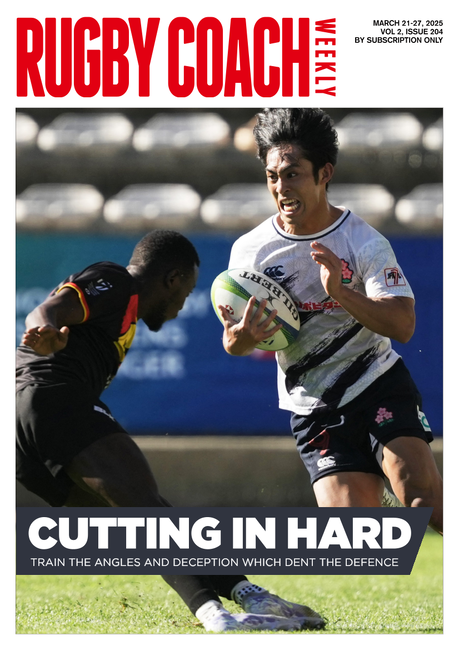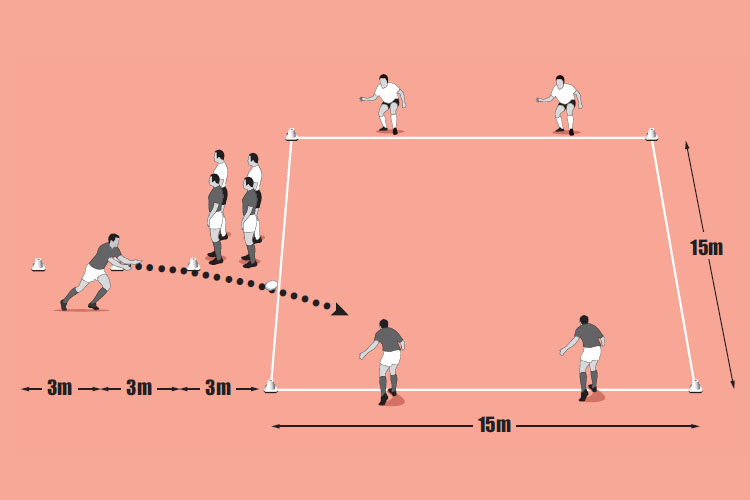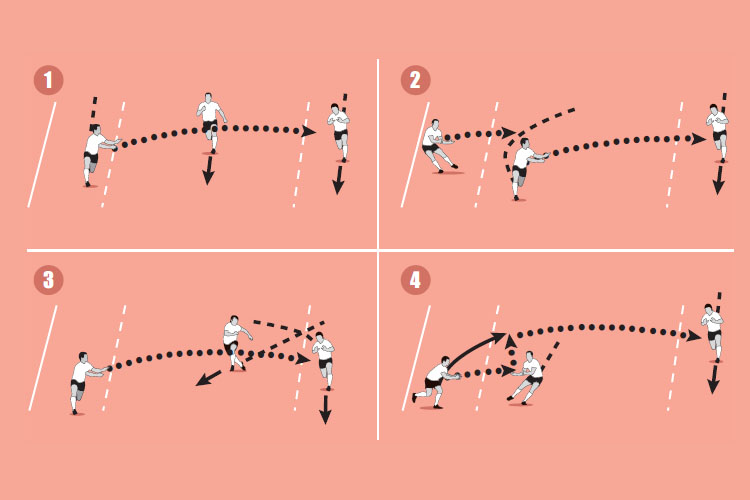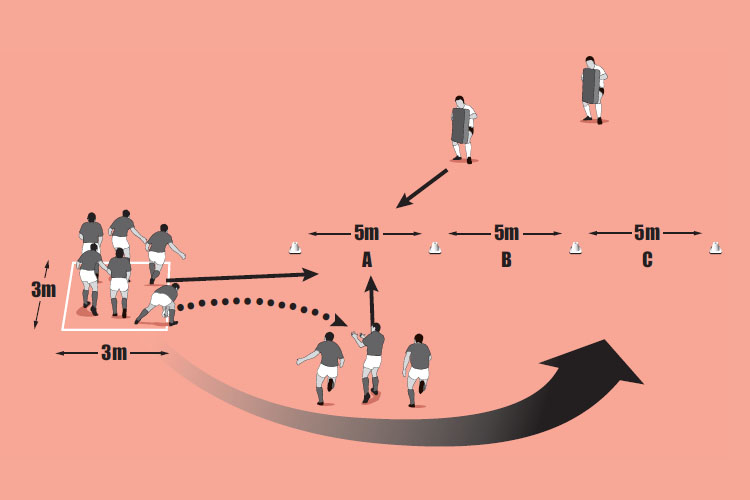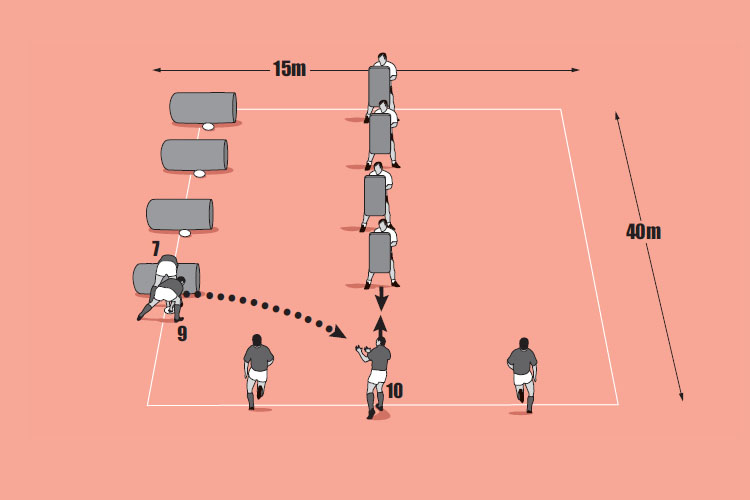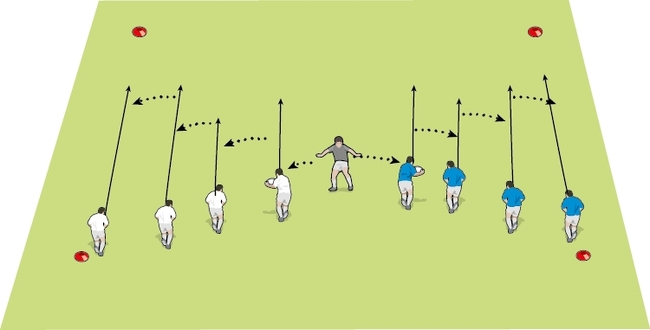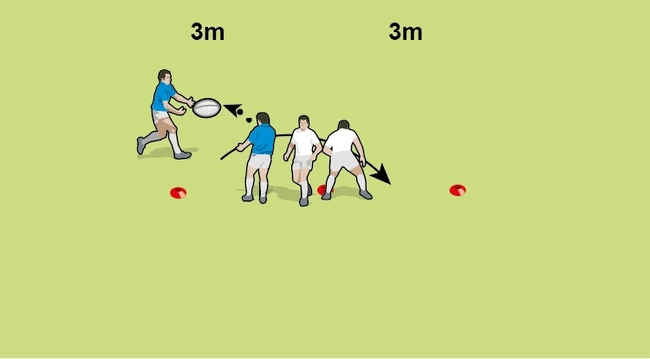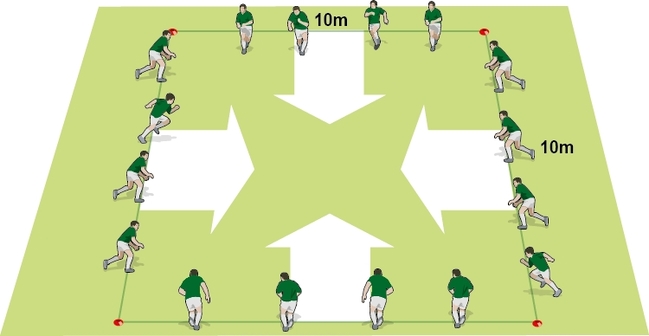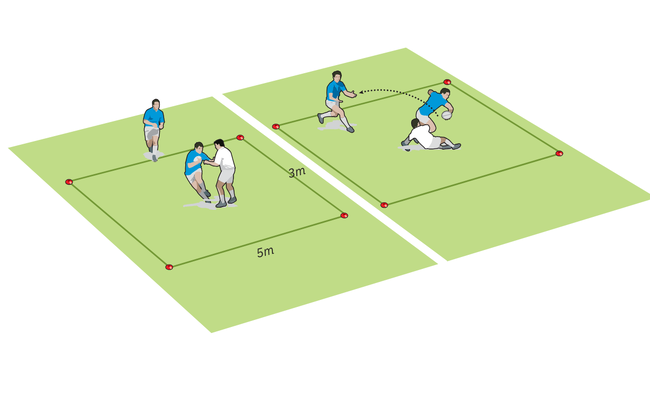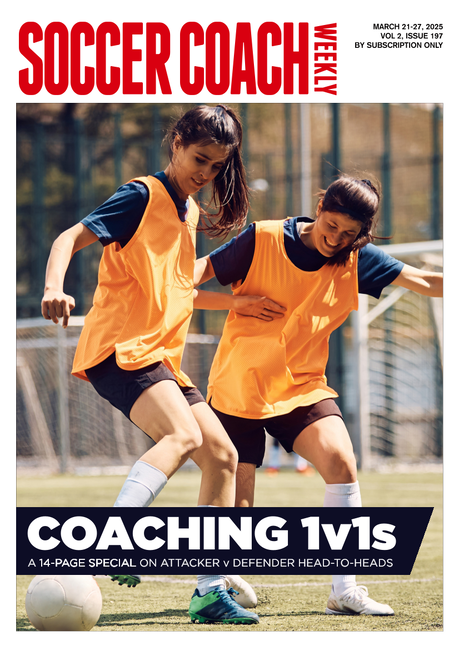Pirates
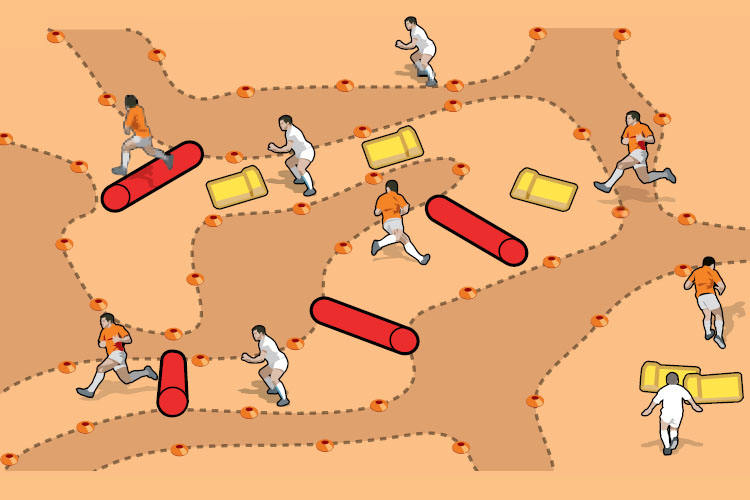
This session is fun, easy to set up and works your players’ footwork and conditioning. The players will be jumping and side stepping around a “shipwreck” trying to avoid “pirates”. The game further develops the decision making elements from the initial session. (You can also get the players to set up the “wreck”.)
Warm up time: 7-10
Session time: 20-25
Development time: 10-15
Game time: 10-15
Warm down time: 7-10
What to think about
- Are the players using evasion skills to escape the chasers?The whole shipwrecked area is set out with obstacles and chasers to encourage agility and evasion. If your players are struggling with this take them back to basic sidestep, swerve and change of pace practices.
- Are the players using any tactical awareness in their strategy to avoid capture?Vision and scanning the situation are key to making the correct decisions. Let the runners practice moving about the shipwrecked area without being chased before adding the chasers. This will give them an awareness of the scene and help their decision making.
set-up
- Evade the four chasers (“pirates”) and avoid the obstacules.
- Runners are caught with a touch tackle. Once caught you must stand outside the practice area.
- Both chasers (“pirates”) and runners must stay out of the “no-go” areas. If you step into these you are penalised and must stand at the side.
What you get your players to do
Mark out the box like a shipwreck. In some areas pads and poles can be placed to act as obstacles. Split your squad into eight runners and four “pirates” (the chasers). There are areas where all the players can go and areas neither pirate nor runner is allowed. If they go into these areas they are out of the game. Players can jump from safe area to safe area if they want. The pirates have to capture the runners using a touch tackle. Once caught the runner stands at the side. The objective is to catch all the runners.Thank you for reading
to enjoy 3 free articles,
our weekly newsletter, and a free coaching e-book
Or if you are already a subscriber, login for full access
Newsletter Sign Up
Coaches Testimonials

Gerald Kearney, Downtown Las Vegas Soccer Club

Paul Butler, Florida, USA

Rick Shields, Springboro, USA

Tony Green, Pierrefonds Titans, Quebec, Canada
Subscribe Today
Be a more effective, more successful rugby coach
In a recent survey 89% of subscribers said Rugby Coach Weekly makes them more confident, 91% said Rugby Coach Weekly makes them a more effective coach and 93% said Rugby Coach Weekly makes them more inspired.
Get Weekly Inspiration
All the latest techniques and approaches
Rugby Coach Weekly offers proven and easy to use rugby drills, coaching sessions, practice plans, small-sided games, warm-ups, training tips and advice.
We've been at the cutting edge of rugby coaching since we launched in 2005, creating resources for the grassroots youth coach, following best practice from around the world and insights from the professional game.


